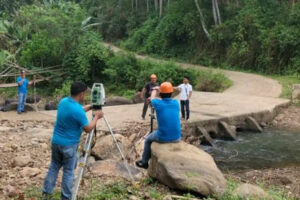LACK of funding for project development and political pressures that increase the cost of private sector expenses are among the barriers to public-private partnerships (PPP) at the local level in the Philippines, according to the PPP Center.
Still, at least three provinces, two cities and one municipality have successfully pursued PPPs and adopted practices that their peers could learn from, the agency said.
In an e-mail to BusinessWorld, the PPP Center said PPP remains a viable option for local government in financing local infrastructure projects such as public markets, slaughterhouses, hospitals and water supply systems.
It said there have been several digitalization and information and communications technology-related PPP projects at the local level. Local governments “see this as a way to make certain facilities, processes, and public services more efficient.”
“Local government units (LGU) that used to lack the capacity to enact their own PPP regulation now have the PPP Code as the implementation-ready legal framework that they can use to jumpstart their PPPs,” PPP Center Deputy Executive Director Jeffrey I. Manalo said.
He said the provinces of Negros Occidental, Cavite and Bataan, the cities of Iloilo and Baguio, and the municipality of Vaggao in Cagayan province are some of the LGUs with a steady project pipeline involving PPPs, both solicited and unsolicited.
These local governments have sought feedback from stakeholders and potential investors to ensure that PPP projects are commercially, economically and technically viable.
“The firm commitment of these LGUs is crucial in developing and implementing successful PPP projects,” Mr. Manalo said. “The political will of local leaders plays a vital role, especially during the approval and implementation phases of these projects.”
He noted while local PPP projects in the pipeline remain mostly unsolicited, there’s “increasing interest” from LGUs in developing their own PPPs and pursuing them using the solicited PPP track.
The government of President Ferdinand R. Marcos, Jr. has vowed to harness the potential of PPPs to boost Philippine infrastructure. In December, he signed the PPP Code or Republic Act No. 11966, which amended the Build-Operate-Transfer (BOT) Law to create a unified legal framework for all PPPs at the national and local levels.
Mr. Manalo said major obstacles to PPP projects at the local level include lack of funding to conduct their own preparatory or project development studies and their lack of capacity to develop business cases and assess solicited and unsolicited proposals.
He also cited local political pressures that in some cases have forced local officials to keep water tariffs low “to the point that these may already be below the cost-recovery levels for potential private sector counterparts.”
The center also cited right-of-way issues during the implementation stage and operational challenges in monitoring private sector counterparts.
It said highly urbanized cities and large municipalities often get unsolicited proposals from the private sector due to their commercial potential.
Smaller or less urbanized LGUs are usually advised to adopt a clustering-based approach, under which LGUs are clustered under one PPP arrangement or contract to create a sizeable demand.
“This is intended to optimize investment costs and arrive at designs that are both technically and financially feasible.”
The center said it has developed an LGU PPP Strategy that focuses on assistance to LGUs through capacity-building and technical assistance in pursuing bankable PPP projects.
The project is in line with the government’s aim to expand development in the regions and spread economic growth outside Metro Manila, the agency said. “More LGUs now see PPPs as an engine for growth and driver of economic opportunities.” — Kyle Aristophere T. Atienza


















